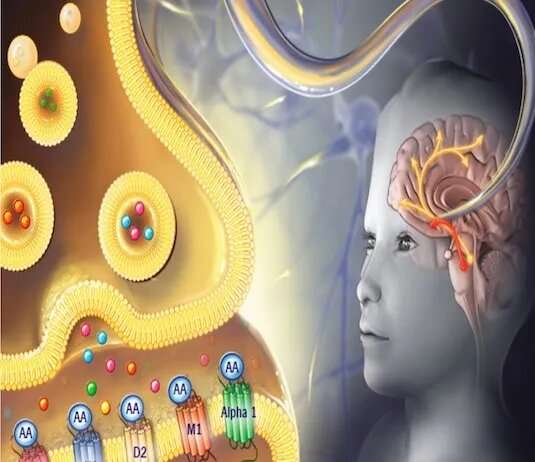Category: Medical News
-

Dafalgan
Dafalgan is a commonly used medicine to relieve pain and fever. However, it can have unwanted side effects if taken in high doses or for long periods of time. For safe and effective use of this medication, it is important to follow your doctor’s or pharmacist’s dosage recommendations, consider other medications you are taking, and…
-

Schizophrenia
I – Introduction: A- Presentation of schizophrenia: Schizophrenia is a complex mental disorder that affects approximately 1% of the world’s population. It manifests in impaired perception of reality, thoughts and emotions, as well as difficulty maintaining social relationships and day-to-day functioning. Schizophrenia can be triggered by a combination of genetic, environmental and biological factors, but the exact…
-

Antiepileptics
I – Introduction: A- Presentation of the subject: antiepileptics and their use to treat epilepsy: Antiepileptics are drugs prescribed to treat epilepsy, a neurological condition characterized by recurrent seizures. Epileptic seizures can be unpredictable and have serious consequences, such as physical injury or impaired consciousness. Antiepileptics work by stabilizing electrical activity in the brain, thereby reducing the…
-

Antipsychotics
I – Introduction: A- Introduction to antipsychotics and their use: Antipsychotics are drugs prescribed to treat a variety of psychiatric disorders, such as schizophrenia, bipolar disorder, and major depression. They work by blocking dopamine receptors in the brain, which can reduce psychotic symptoms and improve mood and cognitive function. Antipsychotics can be given as tablets, liquids, or…
-

Anxiolytics
I – Introduction: A- Definition of anxiolytics and their usefulness in the treatment of anxiety: Anxiolytics are medications prescribed to treat the symptoms of anxiety. They work by altering brain chemistry, reducing neuronal activity and slowing down the central nervous system. Anti-anxiety medications can be prescribed for disorders such as generalized anxiety disorders, phobias, panic disorders, and…
-

Sedatives
I – Introduction: A- Definition of sedatives and their use: Sedatives are drugs used to calm the nervous system and reduce brain activity. They are commonly used to treat anxiety, insomnia, bipolar disorder, seizures, and other medical conditions. Sedatives work by reducing brain activity and slowing bodily functions, which can help calm anxiety and promote sleep. There are…
-

Hypnotics
I – Introduction: A- Presentation of the subject: Introducing the topic is a crucial step in writing a search engine optimized article on hypnotics. Hypnotics are drugs used to treat sleep disorders such as insomnia. They work by altering brain activity to induce sleep, but they can also have unwanted side effects such as addiction and daytime…
-

AIDS
I – Introduction: A- Definition of AIDS and its impact on public health: AIDS, or acquired immunodeficiency syndrome, is a viral disease caused by the human immunodeficiency virus (HIV). HIV infects cells of the immune system, weakening the body’s ability to fight infection. AIDS is a chronic disease that can lead to opportunistic infections, cancers and autoimmune…
-

Antidepressants
I – Introduction: A- Presentation of antidepressants: Antidepressants are medications prescribed to treat depression, a common mental disorder that affects millions of people around the world. Antidepressants work by regulating levels of neurotransmitters in the brain, particularly serotonin and norepinephrine, which are responsible for regulating mood, anxiety, and sleep. There are several types of antidepressants, each with…
-

Gastroesophageal reflux disease – GERD
I – Introduction: A- Definition of reflux and its symptoms: Reflux is a common health problem that affects millions of people around the world. It is caused by the involuntary backflow of stomach contents into the esophagus, causing irritation and heartburn. Common symptoms of reflux include a burning sensation in the chest, acid regurgitation, chronic cough, and…
You must be logged in to post a comment.